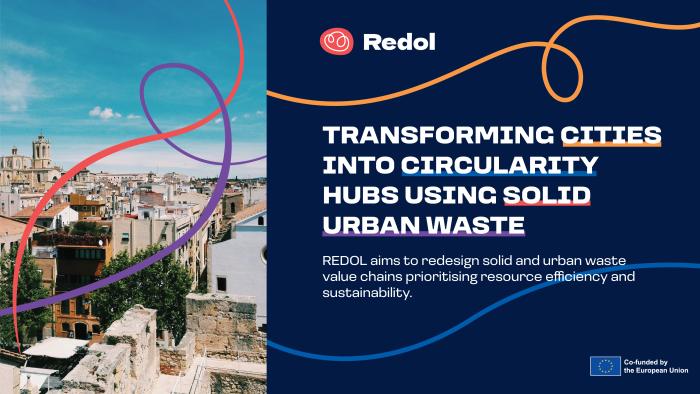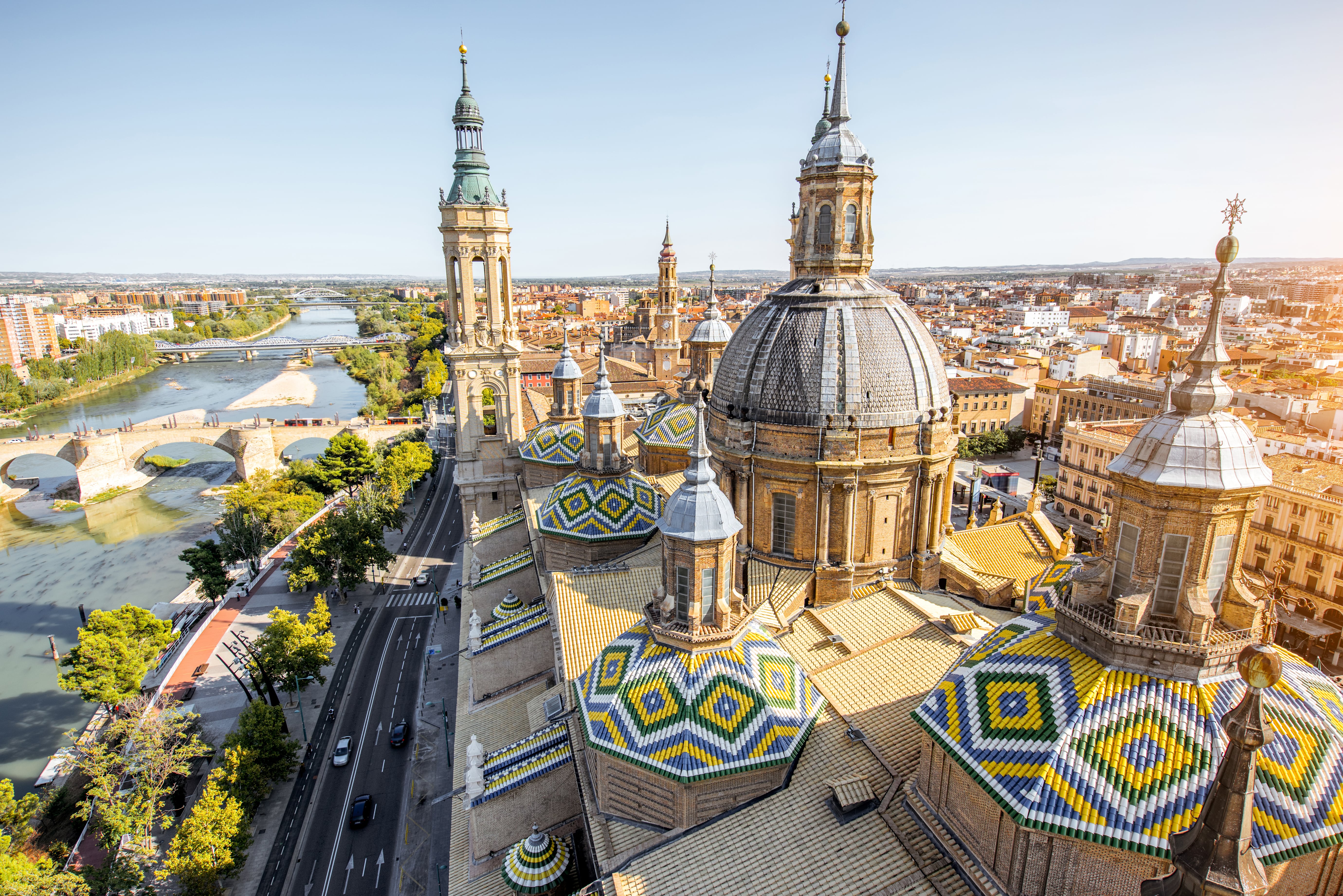
Thirty-six organisations, active in circular economy and waste management, contribute to REDOL, an EU-funded project that supports Europe to become zero-waste.
REDOL: an EU project that promotes circular economy in cities by redesigning five value chains for solid urban waste (SUW) and implementing new solutions for the collection, sorting, and processing of materials to avoid landfilling.
In the EU, each citizen produces 500kg of waste on average. However, only 45% of this amount is recycled.
Aragon’s Regional Hub for Circularity: Demonstration Of Local industrial-urban symbiosis initiatives (REDOL) project, implemented in Aragon with Zaragoza as the centre of the hub for circularity, counts on the key support of the Zaragoza Council and multiple industries and research centres active in waste management, sorting and sensing, materials processing and recycling, eco-design, citizen engagement and much more.
REDOL promotes the transition of Zaragoza towards a zero residue city by 2040, thus recycling 100% of the produced urban waste. The project targets to re-use, valorise or transform over 140,000 tons of solid urban waste per year, transforming them into secondary raw materials instead of landfilling, resulting in economic savings and reduced GHG emissions.
“The circular economy is essential for achieving sustainable development and addressing the challenges of waste management and resource depletion. The REDOL project will help cities to take advantage of the potential of solid urban waste as a source of circular products and to foster industrial-urban symbiosis,” said Jorge Arroyo, the project coordinator of REDOL and technology project manager at CIRCE.
The project will also develop guidelines and recommendations for major decision-making bodies and aims to improve citizens’ perception of SUW as a local resource and recycled product, thus increasing their participation in separate collection schemes. By the end of REDOL, the urban-industrial symbiosis developed in Zaragoza should also be replicated in Amsterdam, Prato in Italy and Bornholm in Denmark.
REDOL invites all stakeholders, including local and regional actors, to join us in this journey toward a more sustainable and circular future.
For more information on the REDOL project, please follow X (Twitter) and LinkedIn.
Find all REDOL project partners here.
Curious about REDOL? Get in touch: francesca.monaco@geonardo.com

